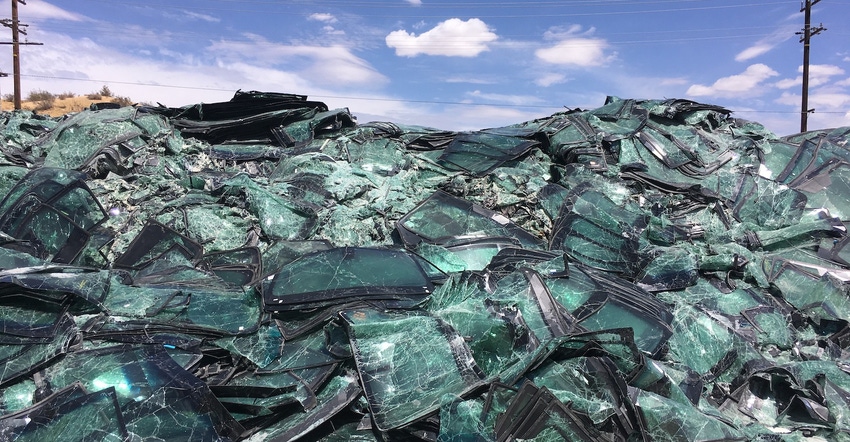Both grades are formulated with polyvinyl butyral (PVB) recycled from automotive glass.
June 30, 2022

Avient Corp., has debuted two engineered polymer solutions that can improve the sustainability of automotive applications. First, two additional grades have been added to the reSound REC thermoplastic elastomer (TPE) portfolio. Both grades are formulated with polyvinyl butyral (PVB) recycled from automotive glass by Shark Solutions. Also announced are two new Edgetek PKE polyketone (PK) grades with non-halogen flame retardants (NHFRs). Applications for reSound REC TPEs include automotive exterior and under-hood components, while Edgetek PKE NHFR formulations are specifically designed for electric vehicle (EV) components, including connectors.
“Avient continues to develop innovative engineered materials to help customers achieve their sustainability goals,” said Matt Mitchell, director, global marketing of Specialty Engineered Materials at Avient. “For instance, we are closing the loop by incorporating recycled PVB from vehicle glass into our reSound REC TPEs, which then go back into other automotive applications, as well as consumer products including grips and handles for personal care items. With Edgetek polyketone grades, we offer attractive alternatives to polyamide that can lower carbon footprint. In both cases, we’re making it easier for customers to switch to sustainable options by providing comparable performance to traditional materials.”
Laminated glass from vehicles often ends up in landfills. To address this issue, Shark Solutions, a Danish clean technology company, recycles automotive windshields and architectural glass to extract PVB, a thermoplastic used as an interlayer in the laminated glass panels. Developed through a collaboration with Shark Solutions, Avient’s proprietary formulations incorporate PVB in combination with other recycled raw materials. These new additions to the reSound REC TPE portfolio are comprised of 60 percent recycled content, while delivering performance attributes comparable to those of traditional products – including aesthetics, haptics and physical properties.
The new reSound REC TPEs are offered in two grades with Shore-A hardnesses of 47 and 54 to meet different customer requirements. They can be injection molded or overmolded onto polypropylene (PP). Applications include under-hood gaskets, valves and flaps.
Electric vehicle connectors require materials with specific performance properties, including chemical resistance, flame retardancy and colorability. Polyamide (PA) 6, which is traditionally used in these applications, has several downsides that affect dimensional stability of the part, such as water absorption. New Edgetek PKE NHFR formulations overcome the drawbacks of PA6 by delivering low moisture uptake, as well as excellent chemical and wear resistance, and high-impact resistance. Importantly, the production of PK emits up to 61 percent less carbon than the production of PA66, and 46 percent less than PA6. For further environmental protection, the new Edgetek PKE materials include an NHFR additive, providing flame retardant performance to the UL94 V0 standard.
The new Edgetek PKE NHFR formulations can be laser marked and are pre-colored in orange for high-voltage applications in EVs. Other colors are also available for custom formulations.
New reSound REC TPEs and Edgetek PKE NHFR formulations are manufactured in Europe and can be translated to other Avient locations globally.
About the Author(s)
You May Also Like




